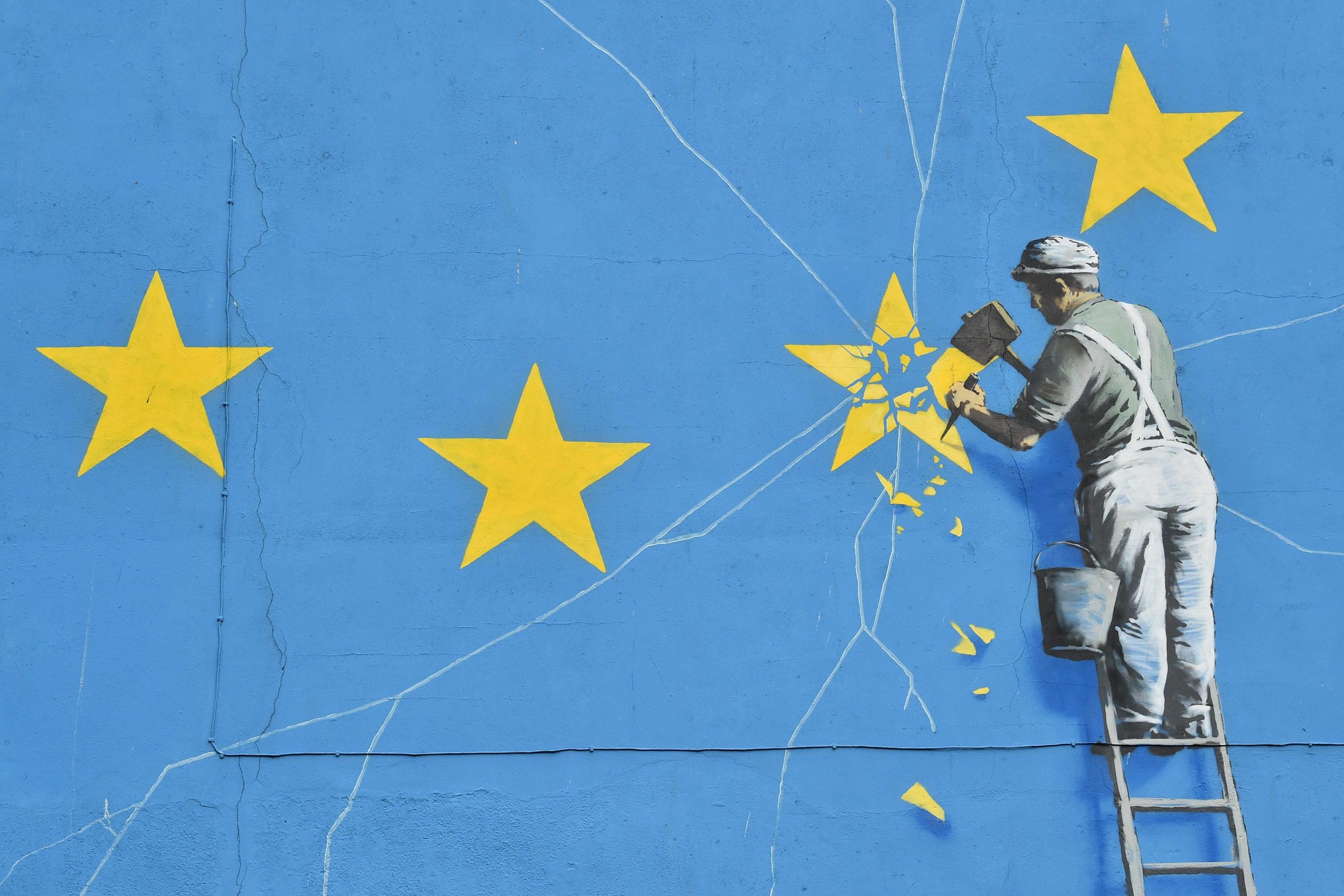Matthew Goodwin is a British professor and bestselling author who has specialized on the rise of national populism in Europe, particularly with the referendum on Brexit in his home country. His book National Populism: The Revolt Against Liberal Democracy, which was listed as The Sunday Times book of the year, argues that the political shockwaves in the Western world with Brexit, the election of Donald Trump and the rise of populism in Europe are just the beginning of a movement which will drastically change Western society. Worries about immigration, ethnic change and economic inequality have weakened the bond between voters and mainstream classical parties. In this interview, I ask Matthew what his views are on the difficulties regarding a Brexit deal and the future of the European Union.
What are your thoughts on the calls for a second referendum on Brexit by EU representatives and liberal pundits, and the claim that the British people have been manipulated and lied to by pro-Brexit politicians and the British tabloid media?
A case for a second referendum is very problematic. Most people in Britain don’t want a second referendum, if you look at the polls, and a lot of people worry a second referendum would undermine the quality of British democracy from below and would erode the social contract between ordinary people and the ruling elites. What I would remind the Italian audience is that a vast majority of Members of Parliament in the House of Commons voted for a referendum on membership in the European Union, and Article 50 to be triggered, and then stood on the manifesto and then committed on the Withdrawal act which committed to leaving the EU. This is the first time in history the British people asked for something which was endorsed by the parliament and that the government had sworn to respect, so I don’t think a second referendum is the best way to respond to that. As for your second question, many on the remain side argue leavers didn’t know what they were voting for, but my research and studies show leavers knew exactly what they were voting for: they wanted greater control over their legislation and their courts, and they wanted lower immigration by ending freedom of movement by EU nationals. I, therefore, don’t find it credible to say that after all of this time, people have changed their minds, when there is no evidence for this, and to the contrary, there is a lot of evidence that the British people who voted to leave knew exactly what they were voting for.
Do you think the 52% of people who voted for Brexit, voted for a hard Brexit or a soft Brexit?
I think we have to look at the implications of what they were asking for – most voters wanted to end freedom of movement, and on that basis, you cannot end freedom of movement in a soft way, as this requires you to leave the single market. Most voters, in my view, voted for what Theresa May called for in the Lancaster house speech in 2016 denouncing “citizens of the world” as being “citizens of nowhere”, which was very well received by voters (conservatives were 20% ahead in opinion polls), where she called for Britain to leave the single market and customs union and negotiate a new trade agreement with the EU. Most leavers did not vote for May’s soft Brexit deal of 2018: only 16% of British voters think the deal respected the referendum result. Leavers want a harder version of Brexit than the one the prime minister currently offered. They think it won’t allow the UK to develop trade deals with other countries in the world and to end freedom of movement.
Do you think there could be risks involved, should the Brexit vote not be respected, resembling a revolt like what is happening today in France with the Yellow Vest Movement?
The implications of Brexit being overturned or if Article 50 is delayed until the end of the year are significant: we will see the emergence of two competing movements. The first will be Nigel Farage organizing a new revolt against Westminster, with the UK Independence Party turning more right-wing with figures like Tommy Robinson, and a Brexit party carving its place in the European parliament. If May’s deal is accepted, it will leave space for a new populist party, and we will see a new campaign for a harder Brexit. I’ve interviewed all the people involved in these movements myself, and I know there is going to be a big push by leavers to register their disillusionment with mainstream parties, and it may be that that will mean greater coordination with national-populist movements across Europe. That populist element will almost certainly look for the League in Italy, the National Front in France, AfD in Germany, etc for a common cause.
In this context, do you believe the European Union, as it is today, has any chance of surviving?
If we happen to leave the EU it will strengthen national populists in Europe, but if Brexit doesn’t happen then that will undermine and weaken national populism in Europe because they will realize it is not possible to leave the EU. Brexit is, therefore, a real and natural experiment for a lot of political movements in Europe. Over the longer term, the EU is almost certainly going to have to change because of two main challenges: the first is the very significant and deep-rooted conflict over values of West and East, liberal and conservative – where you have a fundamental dividing line, the second is the economic dispute over redistribution and solidarity between North and South. These two dimensions to the European conflict will not be resolved in the short term and they will accelerate as demographic pressures continue to have an effect to EU member states. How can you have a both a Hungarian and a French conception of what the European Union should be doing? And with the UK leaving, a lot of those states of central and eastern Europe will have to pay more in the budget, and they will likely not pay a union not respecting their sovereignty and borders.
Do the British people still feel European, even outside of the EU, or do you think there is a historical sentiment among Britons that they are not part of Europe?
I think people here do feel European, and Brits identify with Europe overall. But I think the remainers misunderstood how the British people viewed the European Union: I always argued that leave was likely to win, but during the referendum, a form of group-think took over and people fell into the trap of thinking remain was going to win. If you think about British relations with the EU, Britain reluctantly joined an economic relationship, but never wanted a political and social relationship; it never fully committed to being part of the European Union because we always had a very strong national tradition that has emphasized sovereignty and English law. Since the 1700s, we developed a national culture that has always been very wary about European continental power, and all those things came together and found expression in the referendum of 2016. Many people were surprised, but in my book I emphasized why leave only got 52% of the vote, considering the history of British identity as an island nation that has never been fully committed to Europe.



